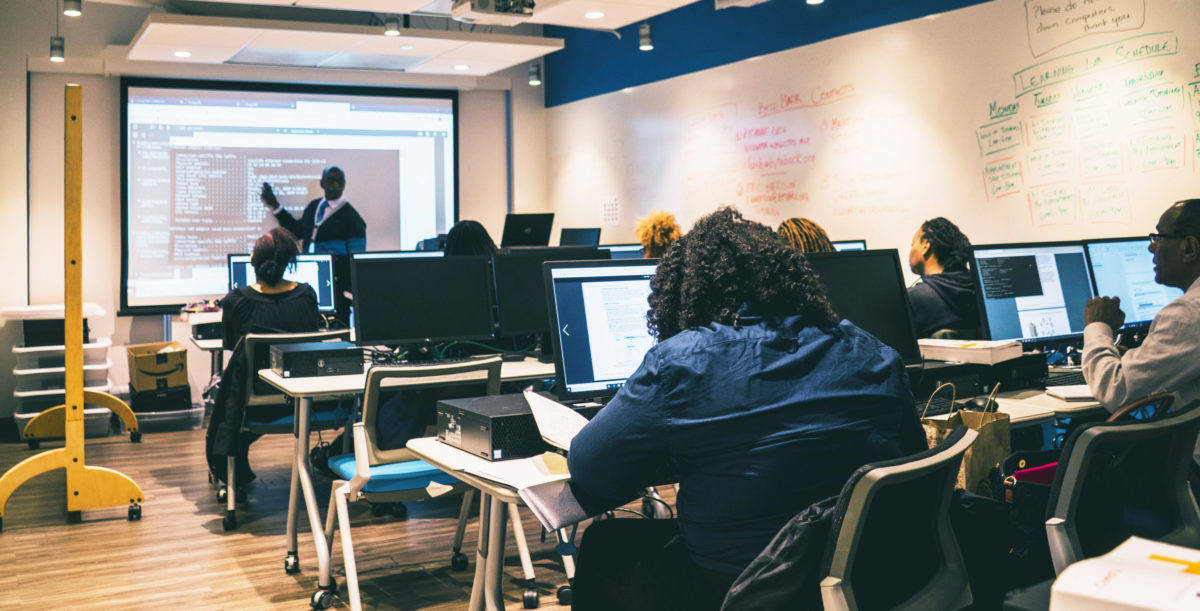When we say “accessibility,” many of us think about adding keyboard navigation, high color contrast, and alt text to a website. But the reality is, even with accessibility features, your website is still inaccessible to millions who don’t have internet access or training to use a computer.
The digital divide remains – 15 million Americans don’t have a computer and 24 million don’t have broadband. And D.C. is no exception.
We’re number one for inequity
We live in a city with a stark digital divide – one that has a strong correlation to poverty, race and geography. The digital world remains inaccessible to thousands here.
Of 50 states and the District, D.C. is number one for home internet inequity.
D.C. has the country’s highest gap in internet access relative to household income: 91 percent of households that earn $50,000 or more have home internet, compared to only 46 percent of households earning less than $20,000. The population of Byte Back students reflects this, too, with only 57 percent of the more than 500 students having home internet access in 2018.
Number one for inequity. Is that a title we want? It’s disheartening and probably surprising as you read this on the internet. You are part of the D.C. population that has technology at your fingertips. But your neighbors don’t all have the same experience, especially if you live in Wards 7 or 8, where residents are more than twice as likely to not have internet, according to American Community Survey information presented by the National Digital Inclusion Alliance.
Increased access means increased opportunity
Accessibility doesn’t stop with WiFi. After all, what good is internet access without skills to use it? In our 22 years of providing free digital inclusion training, Byte Back has taught thousands of Washingtonians, many of whom start using a computer here for the very first time.
Even with our work and that of other digital inclusion organizations, the need for foundational tech skills remains, and the need for advanced training has increased. Jobs that require low tech skills are disappearing around the country and the urgency is increasing to skill up or be left behind.
“I felt like technology had grown up around me, and I was losing the battle,” a Byte Back graduate told me. She started with a computer foundations course and moved up into a career that uses technology.
So, what can we do?
Hopefully you’re now thinking, “digital inequity is worse than I thought. What can I do?”
As a city and a society, we’re increasingly tech-based. As we advance, we should be asking ourselves, “who are we leaving behind? What can we do to close the gap?” It’s time to go beyond just barely crossing that digital divide and help people move up a pathway into tech careers, to be full participants in the digital economy.
Access and training are key. If you care about accessibility from the ground up, do something for your community:
- Get involved and give back. This doesn’t have to be with your money (though funding certainly makes a difference!)
- Volunteer your time with organizations like Byte Back to mentor or tutor
- Ask your company to take action to bridge the divide, asking “who’s missing?” in hiring to increase diversity and offering incentives for employees to volunteer and give back
- Share your support for the Digital Equity Act of 2019, which could provide more than $1 billion for digital inclusion programs nationwide
When you think about accessibility, think about building it from the ground up and making technology in your community truly accessible.







